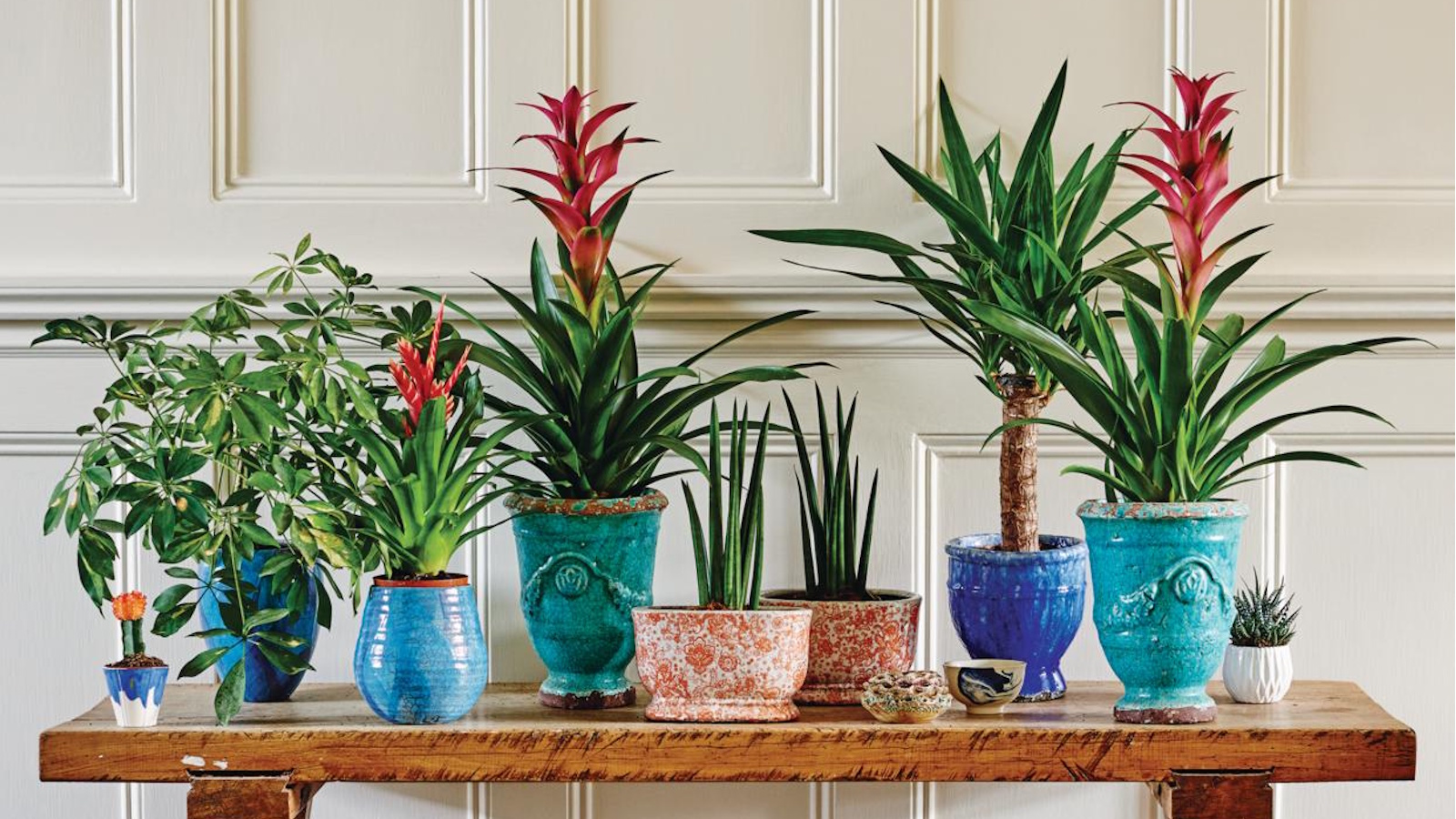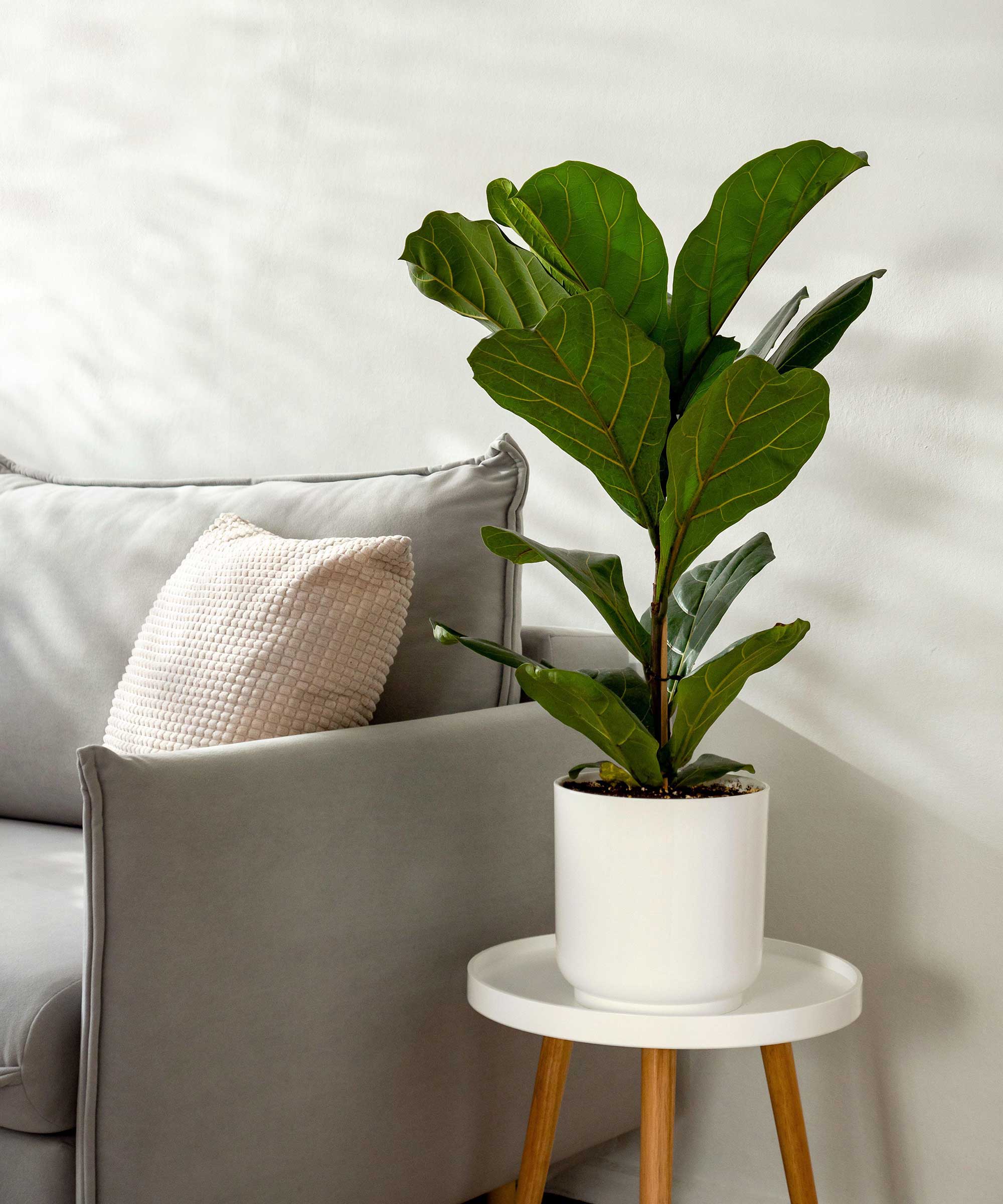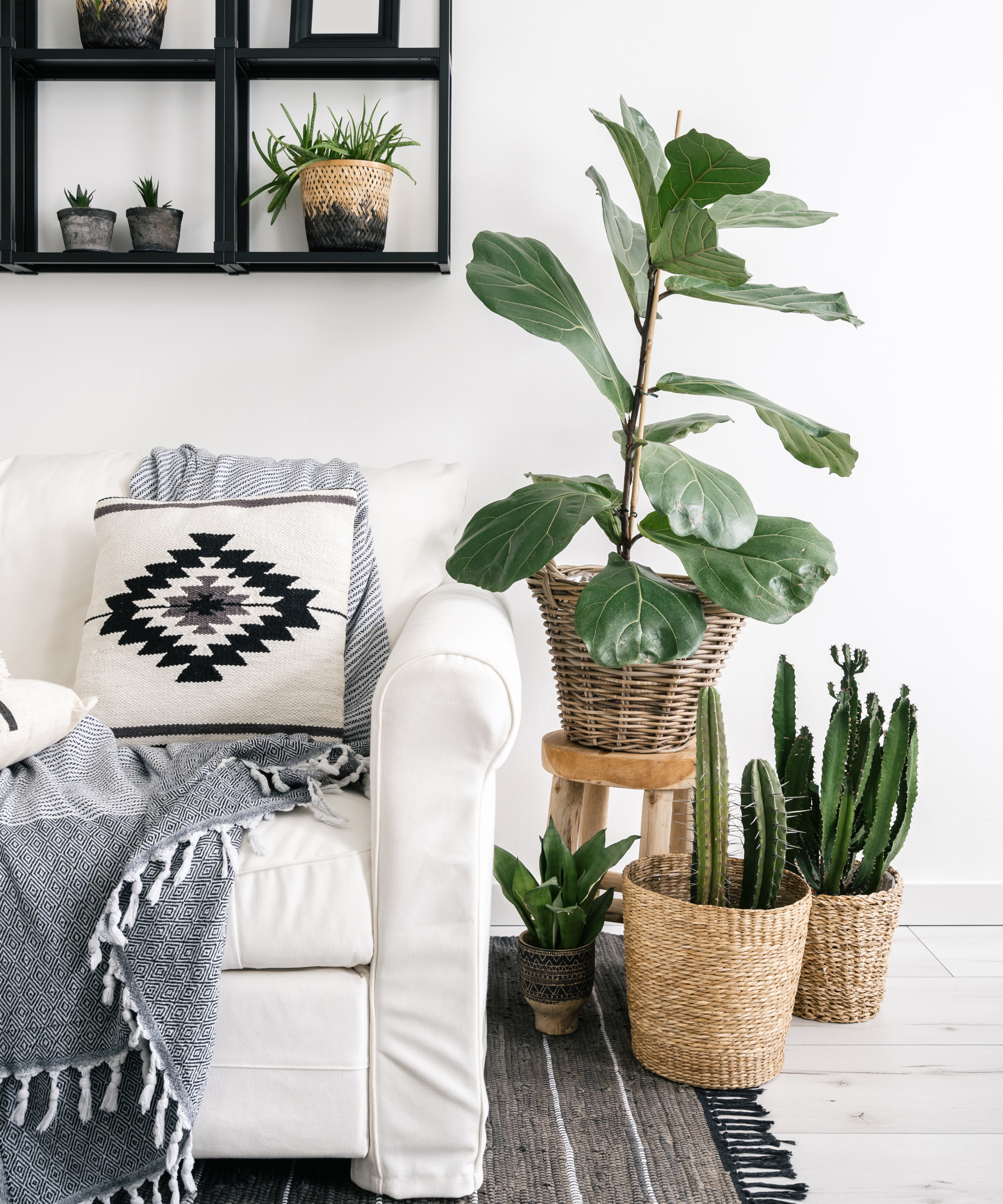
Of all the things I adore, two particularly define life in my small urban home: houseplants and coffee. Anyone who knows me understands that when my birthday comes around gifts are usually in the shape of new greenery and a tin of ground coffee. I simply can't get enough of both.
So, you can imagine my delight when I discovered a coffee ground trick that combines my passions. The method involves putting my ground coffee waste to good use as a natural fertilizer for my best indoor plants. This is because coffee grounds contain a substantial amount of nitrogen, as well as potassium and phosphorus; all essential nutrients for plants that are found in the best fertilizer for houseplants.
It’s not just me who appreciates this neat trick. Judging from the healthy growth of my houseplants, I would say they do, too. Here's how you can make coffee ground fertilizer for houseplants at home.
How to make coffee ground fertilizer for houseplants

Despite my love for all houseplants, I'll admit that low-maintenance indoor plants are my favorite. Why? Because they're so easy to care for. Since I opt for easy maintenance where possible you can imagine how happy I was to see this coffee ground trick is ultra simple.
To begin, I mix one cup of coffee ground (from coffee beans like these at Walmart) waste with two and a half gallons of water. I tend only to use grounds that have had two days to dry to ensure the solution is at its most effective. I then mix the ingredients together and leave it for up to three days.
After stirring the mixture, I strain it and then transfer to my houseplant watering can, such as this stylish design available from Amazon. I take my plants to my sink and pour until the soil is moist. Then, I reward my efforts with a cup from my best coffee machine, naturally.
Alternatively, you can sprinkle coffee grounds directly on plant soil and rake gently to work it in. This is a method Homes & Gardens Gardens Content Editor, Thomas Rutter uses:
'Don't let them dry out on the surface, as this could act as a barrier to water reaching the soil beneath,' he says.
Why are coffee grounds good for houseplants?

I measure this trick's success by the health of my plants – I could tell something was working as it should. But what makes coffee grounds so appealing to plants?
'Coffee grounds are an effective houseplant fertilizer owing to their high nitrogen content,' says Rachel Bull, Head of Gardens at Homes & Gardens and a fellow houseplant aficionado. 'Coffee grounds contain potassium, magnesium, calcium, and other trace minerals too, which are all essential plant nutrients for growth. This fertilizer is slow release, which can lead to consistent growth and means you won't have to feed your plants all too often to see good results.
'When sprinkled directly onto the soil, used coffee grounds can help to improve its structure and ability to retain water,' continues Rachel, 'though I would advise doing this sparingly so as not to create a barrier that will prevent adequate water penetration and air flow.'
It's for these reasons you can also use coffee grounds and tea bags for growing herbs.
FAQs
Do coffee grounds alter houseplant soil pH levels?
Coffee grounds are slightly acidic with a pH between 6.5 and 6.8, which can change and improve the overall pH range of your potting soil. Most houseplants, however, will not respond brilliantly well to a huge increase in the acidity of their soil, which is why you should always try to opt for used coffee grounds rather than fresh ones when making coffee ground houseplant fertilizer.
How often should I use coffee ground fertilizer for houseplants?
You should use coffee ground fertilizer for houseplants around once a week during the active growth season. If, however, you're adding coffee grounds directly to plant soil, you should do so less frequently to avoid the soil becoming too acidic. Once or twice during your plant's active growth season is recommended.
Can you use coffee ground fertilizer in the garden?
Yes, you can use coffee ground fertilizer in the garden when watering garden plants or by adding grounds directly to soil. Acid-loving plants in particular love coffee grounds because they will lower the pH level of soil, causing the soil to become more acidic. This includes roses, azaleas, gardenias, lilies, and hollies.
Alternatively, you can add coffee grounds to homemade compost to use in the yard. They count as a 'green' nitrogen-rich material for your compost. If you practise vermi-composting, or want to learn more about how to use a wormery for compost, coffee grounds are a must as worms love them.
It is also important to note that you should only use pure black coffee grounds on your houseplants. If you've tainted your grounds with milk sweeteners or syrup, you may do more harm than good, including attracting pests. The last thing you want to do is spend your time trying to get rid of fungus gnats, although these sticky plant traps from Amazon can help get rid of the problem quickly.
If you're looking for more coffee-related uses for plants, why not try our coffee filter at the bottom of plant pots hack?







